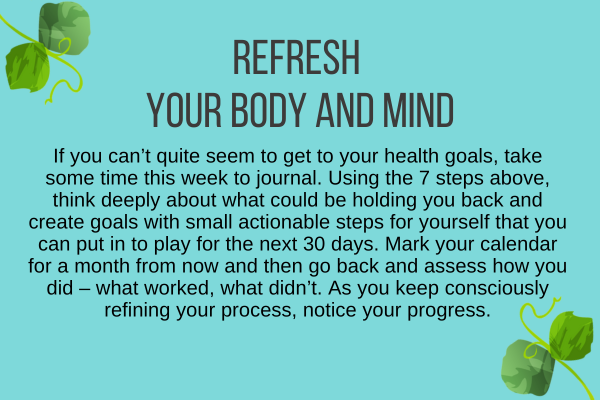Getting fit and losing weight are two of the most common health goals, yet many of us find it hard to achieve them. Often, it’s not a lack of knowledge or resources holding us back—it’s resistance to change which then has us self-sabotaging our own attempts.
Change requires stepping out of our comfort zone, trying new routines, and committing to different habits. If you’ve been feeling stuck or finding it hard to make progress, you might be unknowingly resisting the changes needed to reach your goals.
This week, let’s explore why we resist change and how you can overcome mental barriers to start seeing real progress.
Why Addressing Resistance Matters
Resisting change can keep us trapped in familiar but unproductive patterns, preventing us from reaching our full potential. Whether it’s an aversion to new workouts or difficulty changing eating habits, resistance often stems from a place of fear or discomfort. By understanding and addressing the mental barriers holding you back, you can embrace change with greater confidence and motivation, making it easier to reach your fitness and weight loss goals.
Identify Your Fears Around Change:
One common reason people resist change is fear—fear of failure, fear of judgment, or even fear of success. Ask yourself what specifically feels challenging about getting fit or losing weight. Are you afraid of not sticking to your goals, or worried about how others might perceive you? Once you identify your fears, you can work on reframing them. For instance, rather than fearing failure, view each setback as a learning opportunity. Embracing a growth mindset can help you become more comfortable with change and resilient in the face of challenges.
Challenge Your Existing Beliefs:
Sometimes, resistance to change comes from deep-seated beliefs about ourselves or the process of change. You might think, “I’ve always struggled with my weight” or “I’m not athletic.” These beliefs can limit your progress before you even start. Take time to reflect on any negative beliefs you may hold about fitness and weight loss. Ask yourself if these beliefs are really true or if they’re simply stories you’ve told yourself over time. Shifting to a more empowering mindset can help you approach change with an open mind and a positive outlook.
Break Goals into Small, Achievable Steps:
Change can feel overwhelming if you set goals that are too ambitious right away. Instead, break down your fitness and weight loss goals into small, manageable steps. For example, instead of deciding to work out every day, start with a goal of moving for 10 minutes three times a week. By making gradual changes, you’re less likely to feel overwhelmed or resistant. Each small success can build momentum, making it easier to continue on your path to change.
Focus on the Positive Outcomes of Change:
Instead of dwelling on what you have to give up or the discomfort of trying new things, focus on the positive outcomes that change can bring. Visualize how you’ll feel when you’re fitter, healthier, or closer to your weight goals. Consider the energy you’ll gain, the confidence boost, and the improved quality of life. Shifting your focus to the rewards of change can make the process feel more exciting and less daunting, motivating you to keep moving forward.
Practice Self-Compassion:
When making lifestyle changes, it’s easy to become self-critical if things don’t go perfectly. This negative self-talk can fuel resistance, making you feel defeated before you’ve made significant progress. Practice self-compassion by treating yourself with kindness, especially when you face setbacks. Remind yourself that change is a process and that it’s normal to experience ups and downs. By being patient and forgiving with yourself, you’ll be more resilient and open to trying new approaches instead of giving up.
Create Accountability and Seek Support:
Sharing your goals with friends, family, or a fitness community can reduce feelings of resistance. When you have someone to check in with or cheer you on, you’re more likely to follow through on your plans. Support from others can also provide new perspectives and ideas to help you overcome obstacles. Consider joining a workout group, finding an accountability partner, or working with a coach who can help guide you and keep you motivated.
Celebrate Progress, Not Perfection:
One of the biggest roadblocks to change is the idea that you need to be perfect. This all-or-nothing thinking can make any small slip-up feel like a failure, leading you to resist the process entirely. Instead, focus on celebrating every bit of progress you make, no matter how small. Did you choose a healthier meal option today? Did you complete a workout? Acknowledge these wins! Embracing progress over perfection helps you see that change is a journey, and every step counts.

Resistance to change is natural, but it doesn’t have to hold you back from achieving your fitness and weight loss goals. By identifying and addressing your mental barriers, you can reframe your mindset, embrace small steps, and stay committed to your journey.
Remember, change doesn’t happen overnight, and it’s okay to take things slow. Embrace the process, be kind to yourself, and watch as these small shifts in mindset make a big impact on your path to a healthier, fitter you.

